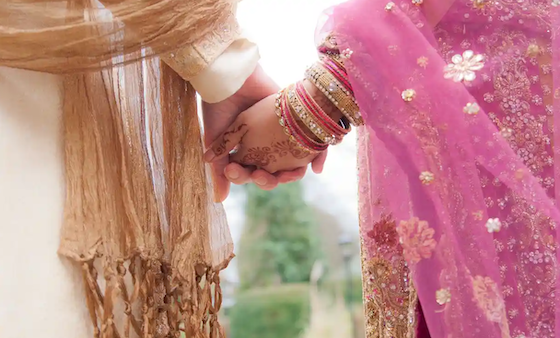A new study into weddings will explore whether the current law in England and Wales adequately reflects the way in which people marry in contemporary times.
De Montfort University Leicester (DMU) are working with Professor Rebecca Probert at the University of Exeter and Dr Vishal Vora at the Max Planck Institute of Social Anthropology in Germany on the study, which begins this month.

The team has won just over £200,000 funding from the Nuffield Foundation, an independent charitable trust which funds research that informs social policy.
DMU’s lead researcher is Dr Rajnaara Akhtar, who has spent years researching informal marriages in the UK, Qatar and Australia. She has also studied marriage and divorce experiences of women in Qatar.
She said: “What the study will do is draw attention to the range of different non-legally binding ceremonies of marriage which take place in England and Wales. We want to find out why couples enter into such ceremonies when it does not meet requirements to be considered legally binding, and why celebrants perform these marriages.
“Then, importantly, we will look at the Law Commission’s Consultation Paper and examine whether the proposed reforms will adequately address the shortcomings in the law, while also making reform proposals based on the research findings.”

Commitment ceremonies, hand fasting and Muslim faith marriages called nikah are all examples of marriages not legally recognised in the UK.
In 2018, official statistics were published which showed for the first time that weddings conducted by humanist celebrants in the UK had grown by 240% between 2004 and 2015, making it the largest non-civil provider of ceremonies in the country.
The research team is due to begin its initial interviews with participants this month, from a range of different backgrounds and communities, before moving on to focus groups and then the legal analysis.
Dr Akhtar said there are many myths surrounding the legalities of marriage in the UK, such as the belief in “common law marriage” and that it offers protection.
She said: “People believe that they have property rights, family rights, but you have very few claims if your marriage is not recognised.
“People cannot comprehend a system in which they have been left without legal protection, so many people simply believe the myth.”
Posted on Thursday 17 September 2020